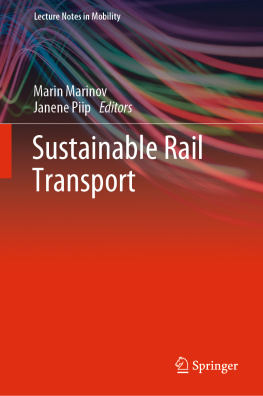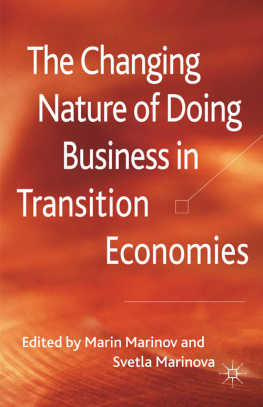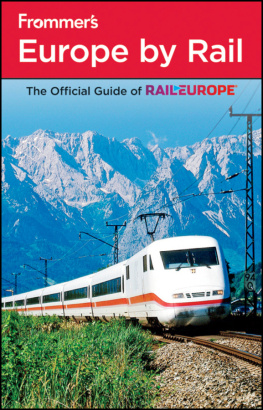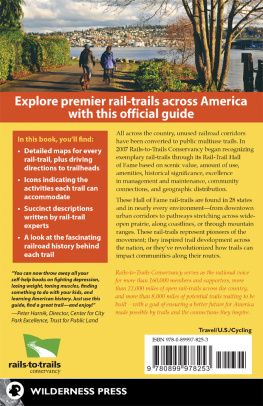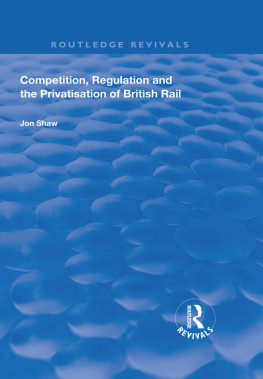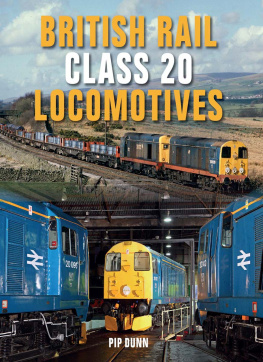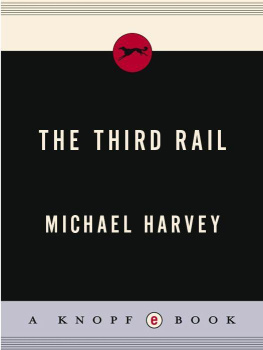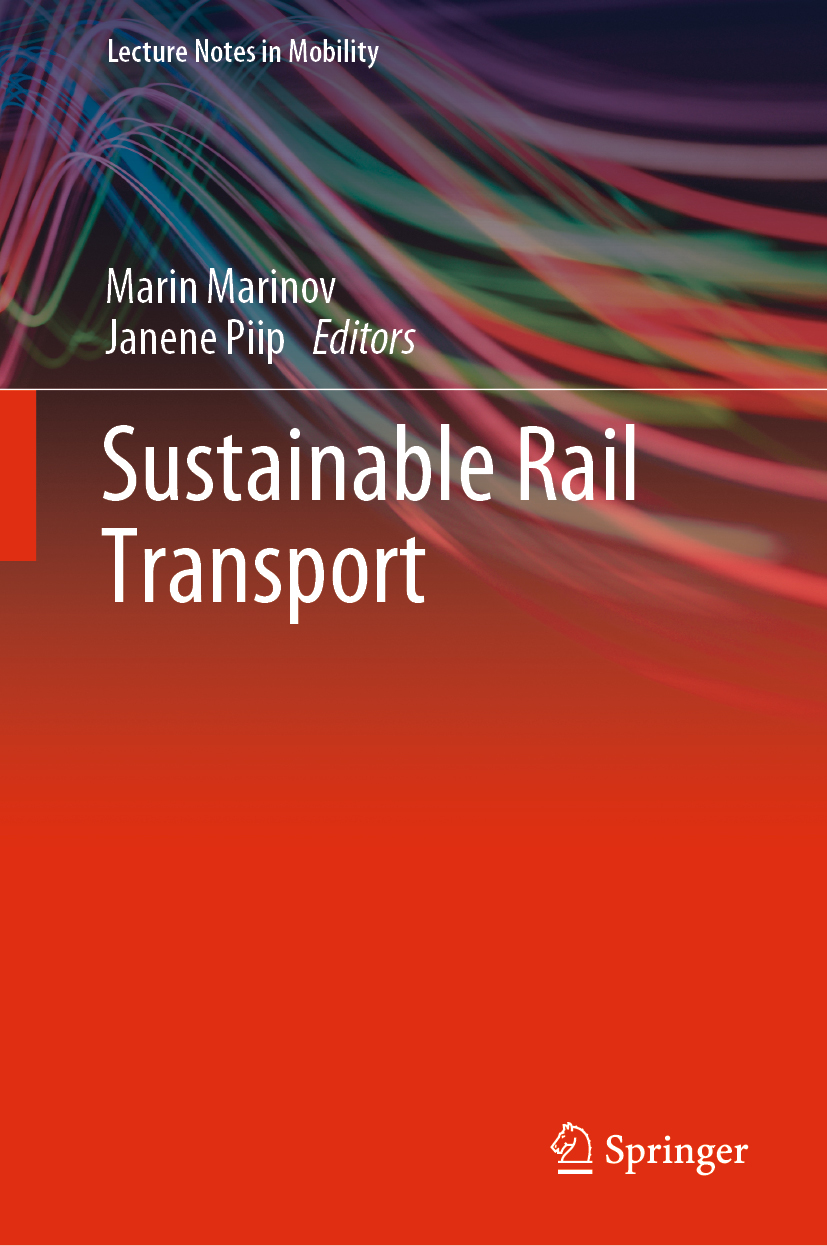Lecture Notes in Mobility
Series Editor
Gereon Meyer
VDI/VDE Innovation und Technik GmbH, Berlin, Germany
More information about this series at http://www.springer.com/series/11573
Editors
Marin Marinov and Janene Piip
Sustainable Rail Transport
Editors
Marin Marinov
Engineering Systems and Management (ESM), Aston University, Birmingham, UK
Janene Piip
JP Research & Consulting, Port Lincoln, SA, Australia
ISSN 2196-5544 e-ISSN 2196-5552
Lecture Notes in Mobility
ISBN 978-3-030-19518-2 e-ISBN 978-3-030-19519-9
https://doi.org/10.1007/978-3-030-19519-9
Springer Nature Switzerland AG 2020
This work is subject to copyright. All rights are reserved by the Publisher, whether the whole or part of the material is concerned, specifically the rights of translation, reprinting, reuse of illustrations, recitation, broadcasting, reproduction on microfilms or in any other physical way, and transmission or information storage and retrieval, electronic adaptation, computer software, or by similar or dissimilar methodology now known or hereafter developed.
The use of general descriptive names, registered names, trademarks, service marks, etc. in this publication does not imply, even in the absence of a specific statement, that such names are exempt from the relevant protective laws and regulations and therefore free for general use.
The publisher, the authors and the editors are safe to assume that the advice and information in this book are believed to be true and accurate at the date of publication. Neither the publisher nor the authors or the editors give a warranty, expressed or implied, with respect to the material contained herein or for any errors or omissions that may have been made. The publisher remains neutral with regard to jurisdictional claims in published maps and institutional affiliations.
This Springer imprint is published by the registered company Springer Nature Switzerland AG
The registered company address is: Gewerbestrasse 11, 6330 Cham, Switzerland
Foreword
I am delighted to see that Volume 3 of Sustainable Rail Transport has been published. The fact that a third volume has been developed is itself a testament to the quality of the earlier volumes and the contribution that they made to the ongoing discourse in this hugely important field. My reading of the material in this volume suggests that it will become an indispensable work for experts in the field, as well as a valuable source of fascinating insights for non-expert rail enthusiasts like me. For rail specialists involved in both research and scholarship, as well as in professional practice, this volume provides a wealth of information and knowledge about key developments and trends impacting the sector.
The railway industry is a dynamic and challenging one. The market place has come more sophisticated with customers demanding ever-increasing value from providers. The wider business and regulatory environment is a complex one and subject to a high degree of change and unpredictability. Technology has continued to develop at a rapid rate, presenting rail professionals with an array of opportunities and threatsfor many firms, simply keeping abreast of these developments is a major challenge. The anthropogenic impact of transport and logistics processes is now widely understood. In this context, the rail industry is well positioned to support wider policy initiatives aimed at creating more environmentally sustainable passenger and freight transport systems. Nonetheless, there is a pressing need to ensure that these systems are designed and managed in a way which minimises degradation to the natural environment whilst maintaining competitiveness in terms of cost and customer service. The myriad challenges currently facing the rail industry call for innovation in terms of both policy initiatives and operational practice. The publication of this volume is very timely in this context.
It is important that rail policy making is evidence-based and that innovation in the sector is based on the best available knowledge about processes, systems, technology and management. The high-quality research contained in this volume is critical in this regard. All of the work described is characterised by high levels of rigour in the research methodologies adopted by scholars. This is vital as the development of deeper and richer insights into the complex phenomena under investigation needs to be based on research designs that are logical and systematic. However, this research excellence and academic rigour alone is not sufficient; it needs to be combined with a deep understanding of the evolving needs of the industry for the outputs to be truly valuable and impactful. I am delighted that this volume clearly demonstrates both academic excellence and practical relevance, with much of the work representing the fruits of effective academic/industry collaboration. The volume also demonstrates clearly that high-quality rail research requires truly interdisciplinary approaches. The implementation of the multi-paradigmatic philosophical positionalities required in this context calls for the effective adoption of methodological pluralism and the attendant use of mixed methods of data collection and analysis. None of this is straightforward, but the material in this volume provides many excellent examples of good practice in this regard.
Rich tomes of this kind require immense dedication and commitment on the part of a range of individualsauthors, editors, publishers and others. More importantly, it requires that the stakeholders work as a team with a clear view of the overall deliverable. In this context, the energy and enthusiasm of my Aston Logistics and Systems Institute colleague Dr. Marin Marinov warrants a particular mention. He is a passionate advocate of rail research and its critical role in developing a sustainable future for this strategically critical industry. The fruits of his endeavours, and those of his collaborators, are clear for all to see in this volume. Sustainable Rail Transport Volume 3 is a vital resource and can be read equally profitably by scholars and practitioners alike.
Prof. Ed Sweeney
Birmingham, UK
March 2019
Preface
Sustainable Rail Transport Volume 3 will inspire rail industry academics and enthusiasts with new ideas and potential enhancements for current business practice. I have been honoured to receive Dr. Marin Marinovs invitation to co-edit this book and provide the preface for the subsequent chapters. Dr. Marinov is a dedicated advocate of sharing rail research and knowledge, having coordinated and co-coordinated all previous works in this series. He has passionately brought together various academics from different institutions to develop a global community interested in pursuing the dissemination of rail knowledge. In 2009, I became involved in rail industry workforce research, entering a fascinating career path. The opportunity to collaborate with other rail industry enthusiasts from around the world has taken me to more than 20 countries and provided countless topics to investigate.
Together, we are pleased to present this volume of innovative ideas from the contributing authors, showcasing insights from their recent research projects. Our previous two volumes of Sustainable Rail Transport were published in 2016 and 2017, receiving excellent feedback, so, once again, a group of dedicated academics and industry specialists have come together to contribute to this new edition. The authors geographically spread across the globe, in countries including the UK, Austria, Brazil, Egypt, Croatia, Thailand, Australia, Slovakia and the Czech Republic, have contributed chapters to make this a valued edition of Sustainable Rail Transport. Throughout the peer review and chapter development process, we have enjoyed reading the various versions of the authors work as the prepublication manuscripts were honed for the volume. The resulting material is impressively enlightening in terms of topics, coverage and innovation.

